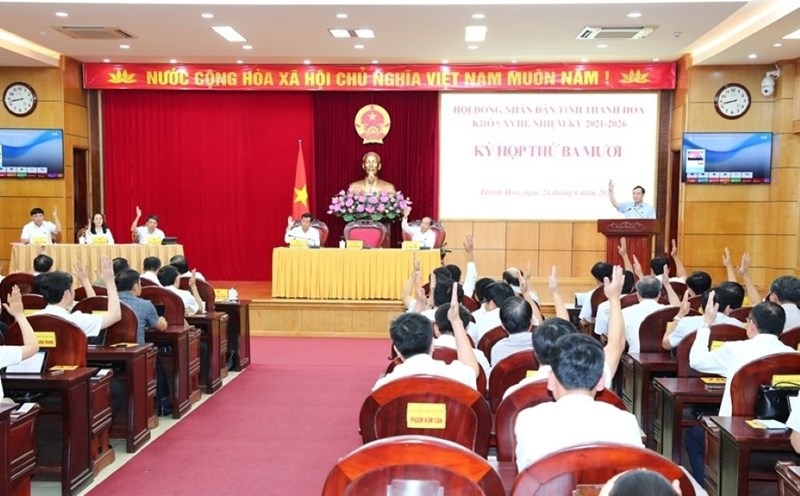Eliminate cross-subsidy of electricity prices
Speaking with Lao Dong, Mr. Tran Viet Hoa - Director of the Electricity Regulatory Authority (Ministry of Industry and Trade) said that the Electricity Law (amended) 2024 has been approved to cover major policies such as electricity planning, electricity market and renewable energy development, ensuring consistency with related laws, and adding many regulations to remove bottlenecks that have existed for a long time.
This includes eliminating cross-subsidy in accordance with the level of electricity market development and orienting the electricity price mechanism in accordance with each level of electricity market development. Electricity prices are implemented according to the market mechanism with price regulation by the State in accordance with the level of development of the competitive electricity market.
Gradually reduce and eliminate cross-subsidy in electricity prices between customer groups not participating in the competitive retail electricity market; gradually reduce and eliminate cross-subsidy in electricity prices between regions and areas in accordance with the development level of the electricity market.
In addition, the State continues to support electricity bills for living purposes for poor households and social policy households according to criteria and mechanisms prescribed by the Prime Minister in accordance with the socio-economic situation of each period to ensure the maintenance of social security policies that have been implemented stably since 2014.
The Law also stipulates that one of the bases for adjusting retail electricity prices is that retail electricity prices promptly reflect actual fluctuations in input parameters, compensate for costs, and the Law also stipulates the method of determining profit margins and the time for adjusting electricity prices.
Thereby, electricity prices gradually follow actual fluctuations in input parameters, ensuring cost recovery and reasonable profits, ensuring principles according to market mechanisms.

Create policies that encourage investment in renewable energy
Associate Professor Dr. Ngo Tri Long - former Director of the Institute for Price Market Research (Ministry of Finance) said that before the amendment, Vietnam's electricity market still had many limitations in competition, leading to monopoly and lack of transparency in electricity distribution.
The amended law has clear provisions on expanding and developing the electricity market, especially building mechanisms to allow many economic sectors to participate.
"In recent times, the development of renewable energy (such as solar power and wind power) in Vietnam has encountered many difficulties due to the lack of clear and effective support mechanisms and policies.
The revised Electricity Law has created policies to encourage investment in renewable energy, such as building a reasonable price mechanism, supporting renewable energy projects and promoting the participation of domestic and foreign investors. This will help increase the supply of renewable energy while reducing dependence," said Associate Professor Dr. Ngo Tri Long.
The expert said that before the amendment, electricity price management was still difficult, lacking flexibility and transparency. This sometimes led to unfairness between consumer groups and businesses, and made it difficult for investors to forecast and plan their business.
The revised law has introduced more flexible electricity price management mechanisms, helping to adjust electricity prices in line with market supply and demand.
One of the major bottlenecks is the unsynchronized development of electricity infrastructure, especially in remote areas. These areas often have difficulty accessing electricity, affecting socio-economic development.
The Electricity Law (amended) has introduced strong support policies to develop electricity infrastructure in these areas, thereby ensuring stable and equitable electricity supply to all regions across the country.
With increasing demand for electricity and dependence on imported energy sources, energy security is a major challenge. The revised law has stricter regulations on protecting national energy security, ensuring stable supply and minimizing the risk of power supply disruptions from external factors.









